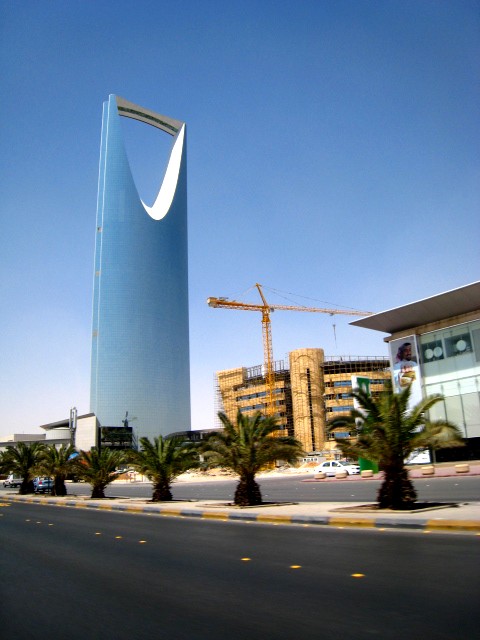3 May 2013
A requirement that foreign companies in Saudi Arabia pay a levy if they employ more expatriate workers than Saudi nationals will cost the kingdom’s private sector $4 billion this year, according to a report published on 1 May.
At present, non-nationals make up about 30% of the population, but occupy 89% of private sector jobs.
Authorities are concerned about unemployment, which is rife among young people. Recent figures suggest that 12% of Saudi nationals are without jobs.
Over the years the Kingdom has tried various “Saudisation” policies to make the private sector hire Saudi nationals, the latest being the imposition of a levy of $640 for every expat employee beyond the number of Saudis employed.
The report, by Saudi investment company NCB Capital, says the impact of the levy will be greatest on the construction industry.
A total of 3.5 million employees, or 45% of the private sector workforce, are employed by construction firms.

Downtown Riyadh, Saudi Arabia
As well as the levy, the Saudi authorities have been seeking to deport foreign workers with invalid working visas.
The crackdown has forced the closing of more than 250 schools and “thousands” of convenience stores across the country, as these are staffed mostly by immigrants, say reports.
One of the reasons that firms have been reluctant to hire nationals is that they are more expensive to employ.
NCB Capital estimates that the levy will push up the average cost of foreign labour by 21% and reduce the gap between foreign and local wages by 7%.
Despite the high costs to the private sector, Iyad Ghulam, equity research analyst with NCB Capital, praised the Kingdom’s Saudisation policy.
“We believe Saudisation is a necessity and will lead to significant benefits for the economy over the long run,” he said. “We believe the Saudisation programme has already led to positive results, with around 700,000 locals hired since it was launched.”






